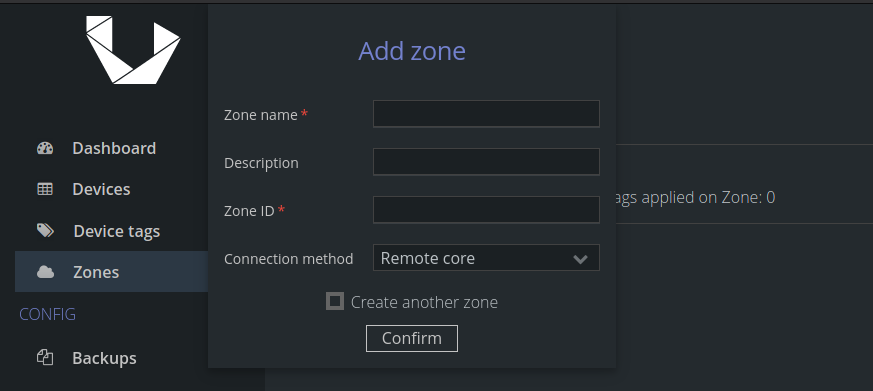A "Zone" in Unimus can be abstractly defined as a group of devices without any IP overlap, polled (communicated with) over a single connection method.
Most usually, a single Zone in Unimus will be a single network (no IP addressing duplicity) polled over a Remote Core, or from the Unimus Server itself (using it's Embedded Core).
You can also use Zones as a means to distribute load from your main Unimus Server across multiple pollers (Cores).
You can Create a zone in the "Zone menu".
Here you need to fill-in the Zone Name and an alphanumeric Zone ID.
You can also select the connection method Unimus will use to communicate with devices:
- Embedded - communicate from the Unimus server, using it's Embedded Core
- Remote Core - will use an external Unimus Core to communicate with devices
After you create a Zone, you can change the connection method at any time through "Edit Zone":
If this Zone is using a Remote Core, you can see the access key for this zone here as well.
When you are installing Unimus Core, it will ask for this access key during the deployment process.
The "Load" values show the utilization of various sub-systems in the Unimus Core for the Core handling this Zone.
(if this zone is using an Embedded Core, all embedded cores will show the same load values)
Load values are:
- D - Discovery subsystem
- B - Backup subsystem
- P - Config Push subsystem
- S - Network Scan subsystem
These load values do NOT reflect on the CPU/RAM usage of the OS, but reflect the utilization of job handler thread-pools in the Core.

